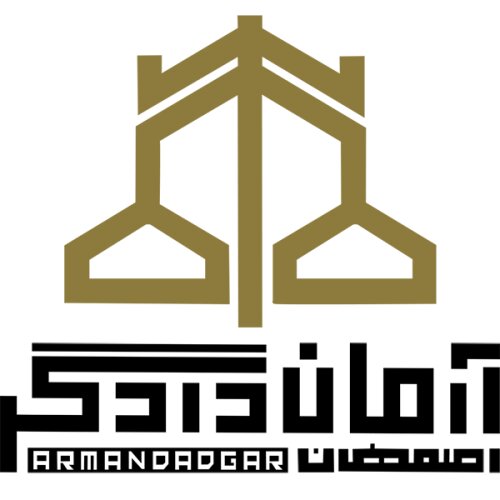Best Agriculture Lawyers in Iran
Share your needs with us, get contacted by law firms.
Free. Takes 2 min.
Or refine your search by selecting a city:
List of the best lawyers in Iran
About Agriculture Law in Iran
Agriculture is a vital sector in Iran, playing a significant role in the country's economy and providing employment to a large portion of the population. The laws and regulations governing agriculture in Iran are complex and require expert knowledge to navigate effectively.
Why You May Need a Lawyer
There are various situations in which individuals may require legal assistance in the field of agriculture in Iran. Some common reasons include disputes over land ownership, agricultural contracts, water rights, environmental regulations, and compliance with government policies.
Local Laws Overview
Key aspects of local laws that are particularly relevant to agriculture in Iran include land ownership regulations, water rights, environmental protection laws, agricultural subsidies, import/export regulations, and labor laws related to agricultural workers.
Frequently Asked Questions
1. Can foreigners own agricultural land in Iran?
Foreigners are generally prohibited from owning agricultural land in Iran; however, they may be able to lease land for agricultural purposes.
2. What are the regulations around water rights in Iran?
Water rights in Iran are regulated by the government, and individuals must obtain permits for water usage in agriculture. Water resources are limited, and conservation measures are enforced.
3. Are there any subsidies available for agricultural activities in Iran?
Yes, the Iranian government provides subsidies for various agricultural activities to support farmers and boost agricultural production.
4. What are the environmental regulations that farmers need to comply with in Iran?
Farmers in Iran are required to comply with environmental regulations related to pesticide use, waste management, soil conservation, and protection of natural resources.
5. How are agricultural contracts enforced in Iran?
Agricultural contracts in Iran are governed by the Civil Code and must meet specific legal requirements to be enforceable. It is advisable to seek legal advice when entering into agricultural contracts.
6. Can agricultural workers in Iran form labor unions?
Agricultural workers in Iran have the right to form labor unions and engage in collective bargaining; however, there are restrictions on the activities of labor unions imposed by the government.
7. What are the export regulations for agricultural products in Iran?
Export regulations for agricultural products in Iran vary depending on the type of product and destination country. It is essential to comply with export laws and obtain necessary permits before exporting agricultural products.
8. How can I resolve a dispute over land ownership in agriculture?
If you are involved in a dispute over land ownership in agriculture, you may need to seek legal assistance to resolve the issue through negotiation, mediation, or litigation in Iranian courts.
9. Are there any government programs to support sustainable agriculture in Iran?
Yes, the Iranian government has implemented programs to support sustainable agriculture practices, such as organic farming, soil conservation, and water management initiatives.
10. What are the penalties for violating agricultural laws in Iran?
Violations of agricultural laws in Iran may result in fines, confiscation of property, or legal action against the responsible parties. It is important to comply with all relevant laws and regulations to avoid penalties.
Additional Resources
For more information and resources related to agriculture in Iran, you may consider contacting the Ministry of Agriculture, the Iranian Agricultural Research, Education and Extension Organization (AREEO), or consulting with agricultural law experts in the country.
Next Steps
If you require legal assistance in the field of agriculture in Iran, it is advisable to consult with a qualified lawyer who has experience in agricultural law. They can provide you with guidance and support in navigating the complex legal landscape and addressing any legal issues that may arise in your agricultural activities.
Lawzana helps you find the best lawyers and law firms in Iran through a curated and pre-screened list of qualified legal professionals. Our platform offers rankings and detailed profiles of attorneys and law firms, allowing you to compare based on practice areas, including Agriculture, experience, and client feedback.
Each profile includes a description of the firm's areas of practice, client reviews, team members and partners, year of establishment, spoken languages, office locations, contact information, social media presence, and any published articles or resources. Most firms on our platform speak English and are experienced in both local and international legal matters.
Get a quote from top-rated law firms in Iran — quickly, securely, and without unnecessary hassle.
Disclaimer:
The information provided on this page is for general informational purposes only and does not constitute legal advice. While we strive to ensure the accuracy and relevance of the content, legal information may change over time, and interpretations of the law can vary. You should always consult with a qualified legal professional for advice specific to your situation.
We disclaim all liability for actions taken or not taken based on the content of this page. If you believe any information is incorrect or outdated, please contact us, and we will review and update it where appropriate.
Browse agriculture law firms by city in Iran
Refine your search by selecting a city.















